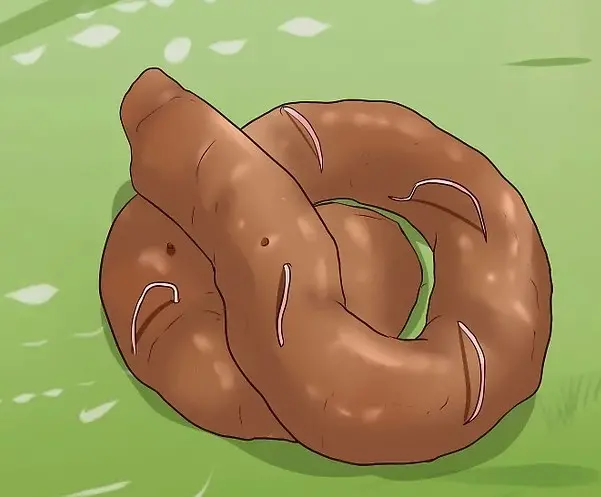Intestinal parasites (i.e., worms) are an undeniably gross—but sometimes completely unavoidable—part of pet ownership. Although these unsightly creatures come in various shapes and sizes, each species is capable of disrupting your pet’s health and development. In addition, if your pet contracts intestinal parasites, they can infect other vulnerable pets.
Understanding the most common signs of parasites can help you recognize when your pet has a possible infection, and you should seek veterinary guidance and care. Fortunately, through veterinarian-prescribed treatment, strict hygiene protocols, and pet waste removal, intestinal parasites are generally easy to eliminate. Once your pet is dewormed, they should receive ongoing parasite prevention—including a monthly broad-spectrum dewormer—and a biannual fecal test to reduce their future infection risk. Learn to recognize these eight signs that may indicate your pet has intestinal worms.
Your pet has visible worms in their stool
Few things can make a pet owner contact their veterinarian faster than seeing worms in their pet’s stool. Two worm species may be passed in infected pet feces, including roundworms (Toxocara spp.) and tapeworms (Dipylidium caninum).
Roundworms resemble spaghetti, while segmented tapeworms—technically, the egg packets, not actual worms—resemble rice grains. Roundworms and tapeworm segments are commonly found in the feces. However, tapeworm segments may also be found in the hair around your pet’s anus or under their tail.
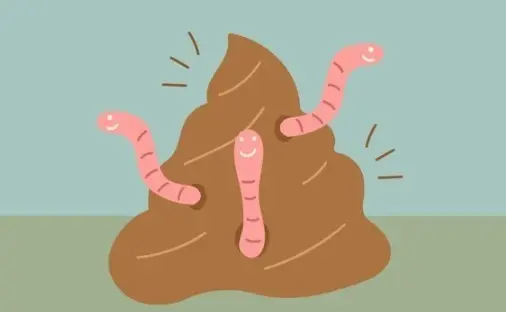
Your pet has diarrhea
Whipworms (Trichurus vulpis) dwell in the junction between the small and large intestine, and the colon. These parasites irritate the colon lining and cause watery—sometimes bloody or mucoid (i.e., containing mucus)—diarrhea. Giardia and coccidia—two single-celled (i.e., non-worm) intestinal parasites—are also common culprits of parasite-induced diarrhea.
Irritation, inflammation, and damage to a pet’s intestinal walls prevents nutrient absorption. Infected puppies and kittens experience weight loss and malnutrition.
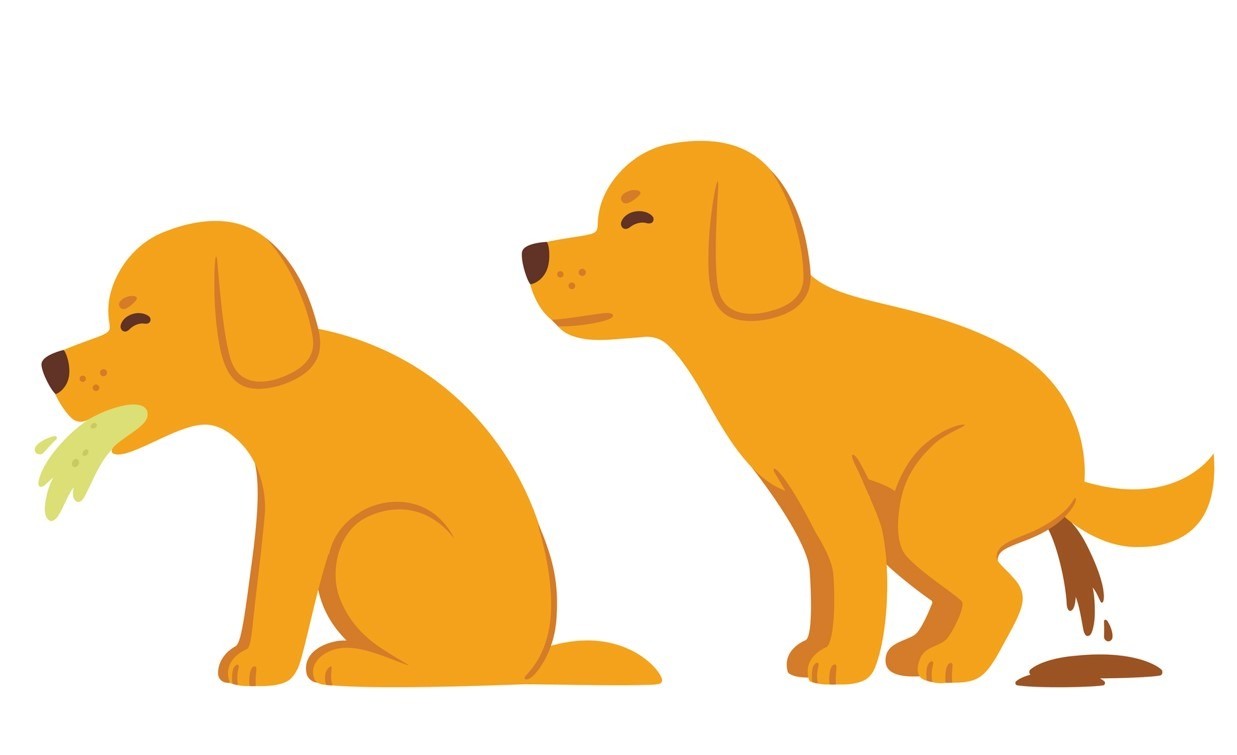
Your pet is vomiting
A pet with a heavy worm burden (i.e., population) can experience gastrointestinal irritation and upset, causing them to vomit. Adult worms can also block the intestine, causing a stomach content backflow. Vomiting is often accompanied by diarrhea, and worms may be present in both. During veterinary-prescribed deworming treatment, mild vomiting can be normal as the body eliminates the dead and dying worms.
Your pet is losing weight despite a healthy appetite
As previously discussed, some intestinal parasites (e.g., whipworms, hookworms, Giardia, coccidia) damage a pet’s intestinal lining. This fragile tissue—one cell-layer thick—is responsible for absorbing key nutrients from the pulverized food passing through the intestinal lumen, and sending those nutrients into circulation where they can be used throughout the body. When a pet’s intestines are damaged, the consumed food’s nutrients are not absorbed, causing a pet with a heavy worm burden to eat ravenously but still lose weight.
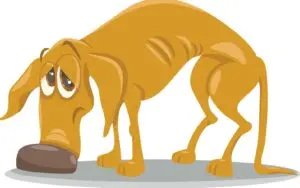
Your pet has a dull or dry coat
Your pet’s skin and coat condition reflect their internal health. When intestinal parasites block nutrient absorption, a pet’s haircoat often becomes dry, brittle, or visibly dull. Attempts to remedy the coat through dietary supplementation or grooming are unsuccessful.
Your pet is scooting or licking their hind end
Rice-like tapeworm segments (i.e., egg packets) pass in a pet’s stool and cause uncomfortable itching and inflammation around the anus. A pet may scoot, drag, or lick their hind end to relieve the irritation. While other causes (e.g., anal sac impaction) are also common, a quick check below your pet’s tail may reveal visible tapeworm segments.
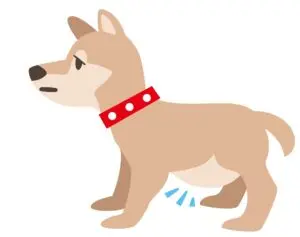
Your pet appears bloated or potbellied
Abdominal swelling or distention is a common roundworm sign in severely affected puppies and kittens. In high-volume infections, roundworms can become so numerous and large that they alter a pet’s visible shape, creating a potbellied or bloated appearance. This distention can be painful and may lead to appetite loss, vomiting, and blockages.
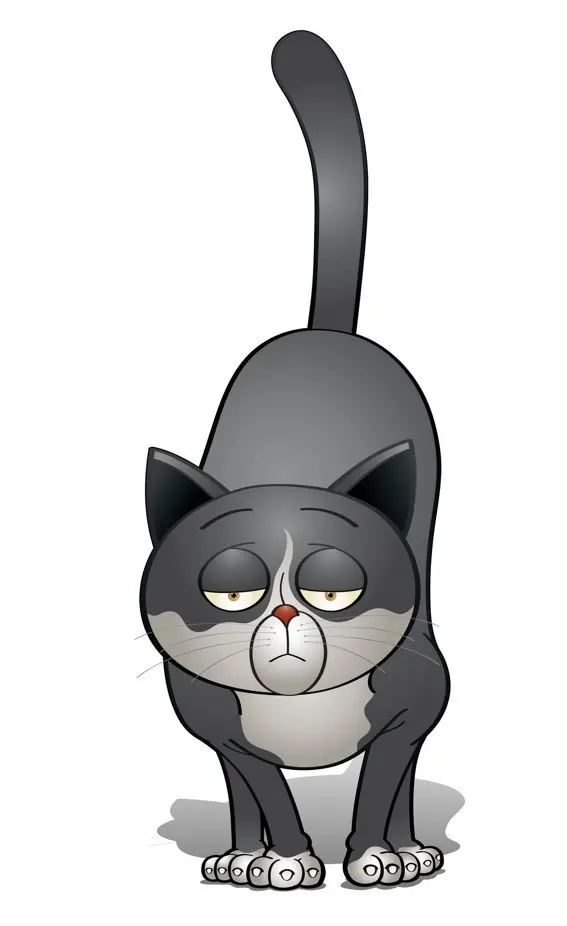
Your pet is lethargic
Infected pets may appear weak or fatigued, or have low energy. Puppies and kittens may not play or interact normally, preferring to sleep. Intestinal parasite-induced lethargy can be caused by ongoing nutrient malabsorption, dehydration from vomiting or diarrhea, or anemia (i.e., low red blood cell count) from hookworm infection.
As their name suggests, hookworms (Ancylostoma spp.) are toothy parasites with hook-like mouthparts that bite and feed on the intestinal lining. Hookworms are blood-sucking parasites that can cause severe life-threatening anemia in puppies and kittens. Because red blood cells transport oxygen throughout the body, anemic pets are visibly weak and lethargic.
While you are likely alarmed to see a few worms in your pet’s stool, this situation is not a veterinary emergency. If your pet is otherwise behaving normally, you can schedule an appointment with your regular veterinarian. However, illness does not keep normal business hours, and our UrgentVet team is here—for pets who are vomiting, lethargic, uncomfortable, or experiencing late-night diarrhea.
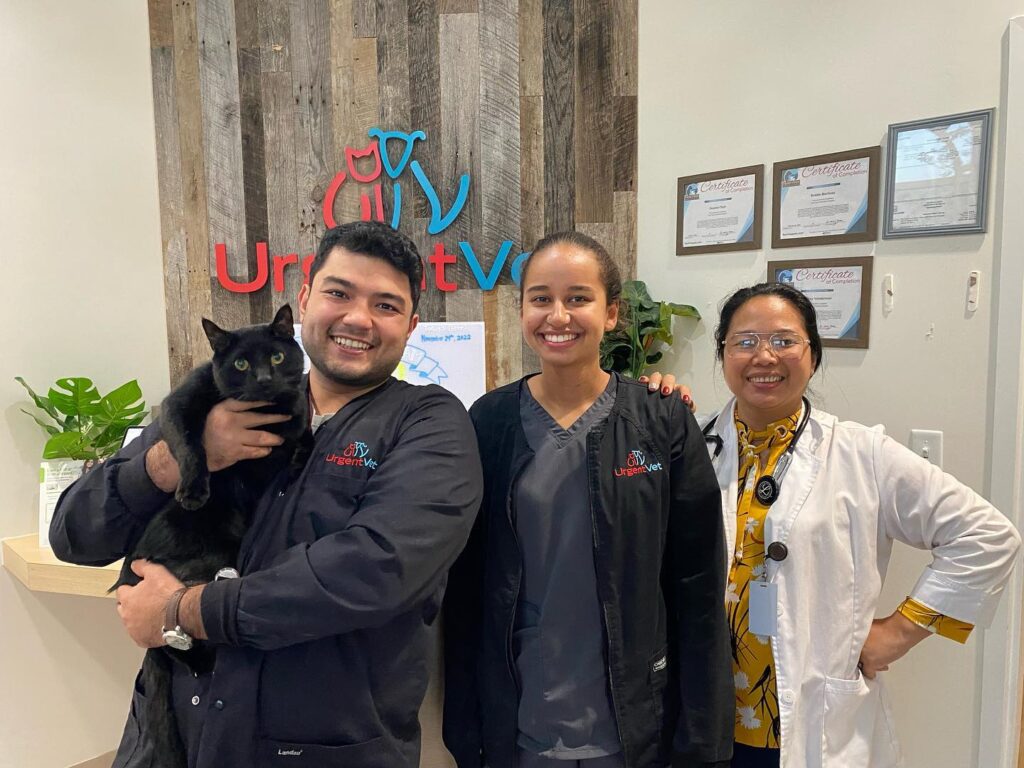
Our UrgentVet team can help with all your pet’s non-life-threatening after-hour needs, no matter how big or small. Find an UrgentVet location near you to reserve your spot, or check in online—because your pet can’t wait to feel better.

